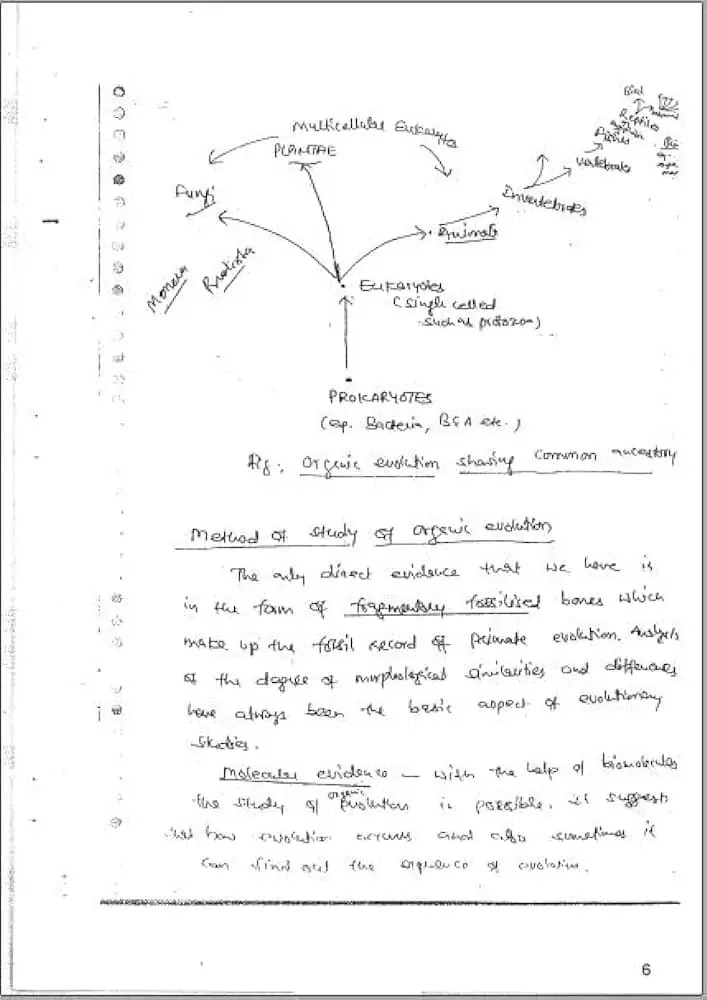Vaid Sir Anthropology Notes: Anthropology is one of the most popular and scoring optional subjects for UPSC IAS Mains exam. Many toppers, including Anudeep Durishetty (AIR 1, CSE 2017) and Sachin Gupta (AIR 3, CSE 2017), have chosen anthropology as their optional and aced it with flying colors.
But how did they do it? What are the secrets to mastering anthropology optional?
One of the key factors that contributed to their success is the use of Vaid ICS anthropology notes.
Vaid Sir is a renowned faculty and mentor for anthropology optional coaching.
He has been teaching anthropology for over 20 years and has helped thousands of aspirants achieve their dream of becoming IAS officers.
Vaid Sir notes are a comprehensive and concise set of handwritten notes that cover the entire syllabus of anthropology optional.
They are based on the latest UPSC pattern and syllabus and include the most relevant and updated content.
The vaid ics anthropology notes also provide ample examples, diagrams, flowcharts, and case studies to make the concepts clear and easy to understand.
In this blog post, we will tell you how to use Vaid Sir notes effectively to prepare for anthropology optional and score high marks in the UPSC IAS Mains exam.
We will also share some tips and tricks to improve your answer writing skills and impress the examiner with your knowledge and presentation.
What are Vaid Sir Anthropology Notes?
Vaid Sir anthropology notes are a set of handwritten notes that are prepared by Vaid Sir himself.

They are based on his classroom lectures and discussions with his students.
The vaid ics anthropology notes are divided into five booklets, each covering a different topic or subtopic of anthropology optional.
The booklets are as follows:
Volume I:
This anthropology notes cover the basics of anthropology, such as its meaning, scope, branches, relationship with other disciplines, and methods of research. It also covers the topics of human evolution, biological basis of life, genetic principles, and human variation and adaptation.
Volume II:
The Vaid Sir Anthropology Notes covers the topics of culture and society, such as the concept, characteristics, and functions of culture, the nature and types of society, the social structure and social organization, the social stratification and mobility, and the social change and development.
Volume III:
This Volume of Vaid ics anthropology notes covers the topics of marriage, family, and kinship, such as the definition, forms, and functions of marriage, the types and rules of marriage, the concept and types of family, the structure and functions of family, the concept and types of kinship, the kinship terminology and classification, and the descent and alliance theories.
Volume IV:
The notes covers the topics of religion, art, and communication, such as the definition, origin, and functions of religion, the types and forms of religious beliefs and practices, the concept and types of art, the functions and forms of art, the concept and types of communication, the modes and media of communication, and the role and impact of communication in society.
Volume V:
This Vaid Sir Anthropology Notes covers the topics of Indian anthropology, such as the demographic profile of India, the ethnic and linguistic diversity of India, the caste system and its features, the tribal situation and issues in India, the constitutional and legal provisions for tribal welfare, the impact of globalization and modernization on Indian society, and the contemporary social problems and challenges in India.
Vaid Sir Anthropology Notes are designed to provide a complete and comprehensive coverage of the anthropology optional syllabus.
They are written in a simple and lucid language, with proper headings and subheadings, bullet points and tables, and diagrams and flowcharts.
Vaid ics anthropology notes also include the latest data and statistics, current affairs and examples, and previous year questions and answers.
Key Points Of Vaid Sir Anthropology Notes
Vaid Sir Anthropology Notes go beyond mere information dissemination; they cultivate critical thinking and analytical skills in aspirants. The notes present anthropological theories and perspectives from diverse viewpoints, encouraging students to critically evaluate and synthesize information. This approach fosters the ability to construct well-reasoned arguments and engage in insightful discussions, a hallmark of a successful UPSC IAS candidate.
Vaid Sir Anthropology Notes remain current and relevant, keeping pace with the ever-evolving landscape of anthropological discourse. The notes integrate contemporary issues and debates into the core anthropological framework, providing aspirants with a holistic understanding of the discipline’s application in the modern world. This contemporary relevance equips students to tackle UPSC IAS questions with confidence and demonstrate their grasp of the subject’s practical significance.
Vaid Sir Anthropology Notes have consistently proven their efficacy in guiding aspirants towards success in the UPSC IAS anthropology optional paper. Numerous testimonials from UPSC IAS toppers attest to the transformative power of these notes, highlighting their role in shaping their understanding and approach to the subject.
How to Use Vaid Sir Anthropology Notes?
Vaid Sir notes are a valuable resource for anthropology optional preparation.
They can help you save time and effort, as you don’t have to refer to multiple sources and books.
The notes can also help you revise and recall the concepts quickly and easily, as they are well-organized and structured.
However, to get the maximum benefit from Vaid ics anthropology notes, you need to use them smartly and strategically.
Here are some tips on how to use Vaid Sir notes effectively:
#1- Read the Vaid Sir Anthropology Notes thoroughly and carefully. Don’t skip any topic or subtopic, as they are all interrelated and important. Try to understand the concepts and logic behind them, rather than memorizing them. Make notes of your own, highlighting the key points and terms, and adding your own examples and illustrations.
#2- Revise the notes regularly and frequently. Don’t let the concepts fade away from your memory. Review the notes at least once a week, and more often before the exam. Use mnemonics, flashcards, quizzes, and mock tests to reinforce your learning and retention.
#3- Practice answer writing using the notes. Don’t just read the Vaid Sir Anthropology Notes, but also write answers using them. Practice writing answers for both short and long questions, covering all the aspects and dimensions of the topic. Use the anthropology notes as a guide, but don’t copy them verbatim. Write in your own words, using simple and clear language, and following a proper structure and format. Use diagrams, flowcharts, tables, and maps to enhance your answers and make them more attractive and appealing.
#4- Supplement the notes with other sources. Don’t rely solely on the Vaid Sir Anthropology Notes, but also refer to other sources, such as books, journals, magazines, newspapers, websites, and videos. Use these sources to update your knowledge, add more information, and get different perspectives and opinions. However, don’t get overwhelmed by the plethora of sources, and stick to the relevant and reliable ones. Also, don’t forget to cite the sources in your answers, using proper referencing styles.
How to Score High Marks in Anthropology Optional?
Using Vaid Sir notes is not enough to score high marks in anthropology optional.
You also need to have a good strategy and technique to ace the exam.
Here are some tips and tricks to score high marks in anthropology optional:
#1- Know the syllabus and the exam pattern.
Before you start your preparation, you should be familiar with the syllabus and the exam pattern of anthropology optional. You should know the topics and subtopics that are included in the syllabus, and the weightage and distribution of marks for each topic. You should also know the types and formats of questions that are asked in the exam, and the time limit and word limit for each question. This will help you plan your preparation and prioritize your topics accordingly.
#2- Study the previous year papers and the answer keys.
One of the best ways to prepare for anthropology optional is to study the previous year papers and the answer keys. This will help you understand the trends and patterns of the exam, the level and difficulty of the questions, the expectations and preferences of the examiner, and the common mistakes and errors that candidates make. You should also try to solve the previous year papers and compare your answers with the answer keys, to assess your performance and identify your strengths and weaknesses.
#3- Enroll in a test series and get feedback.
Another effective way to prepare for anthropology optional is to enroll in a test series and get feedback. A test series will help you practice writing answers under exam conditions, and improve your speed and accuracy. It will also expose you to a variety of questions and topics, and test your knowledge and understanding. Moreover, a test series will provide you with feedback and evaluation, which will help you improve your answers and rectify your mistakes. You can join a test series offered by a reputed coaching institute, or form a peer group and exchange your answers and feedback with each other.
#4- Keep yourself updated and aware.
Anthropology is a dynamic and evolving subject, which requires you to keep yourself updated and aware of the latest developments and happenings in the field. You should read and watch the news and current affairs, especially related to anthropology, culture, society, and human rights. Aspirants should also follow the blogs and podcasts of eminent anthropologists and experts, and read their books and articles. You should also participate in seminars, webinars, workshops, and conferences on anthropology, and interact with other scholars and practitioners. This will help you enrich your knowledge, broaden your horizons, and add value to your answers.
The Bottom Line
Anthropology is a fascinating and rewarding optional subject for UPSC IAS Mains exam.
It can help you score high marks and boost your overall rank, if you prepare well and write well.
Vaid Sir notes are a great resource for anthropology optional preparation, as they provide a comprehensive and concise coverage of the syllabus, with relevant and updated content.
However, to get the best results from Vaid Sir notes, you need to use them effectively and strategically, along with other sources and methods.
You also need to have a good strategy and technique to ace the exam, and follow the tips and tricks mentioned above.
We hope this blog post has helped you understand how to use Vaid Sir notes and how to score high marks in anthropology optional.
If you have any questions or feedback, please let us know in the comments section below.
Happy learning and all the best for your exam!
